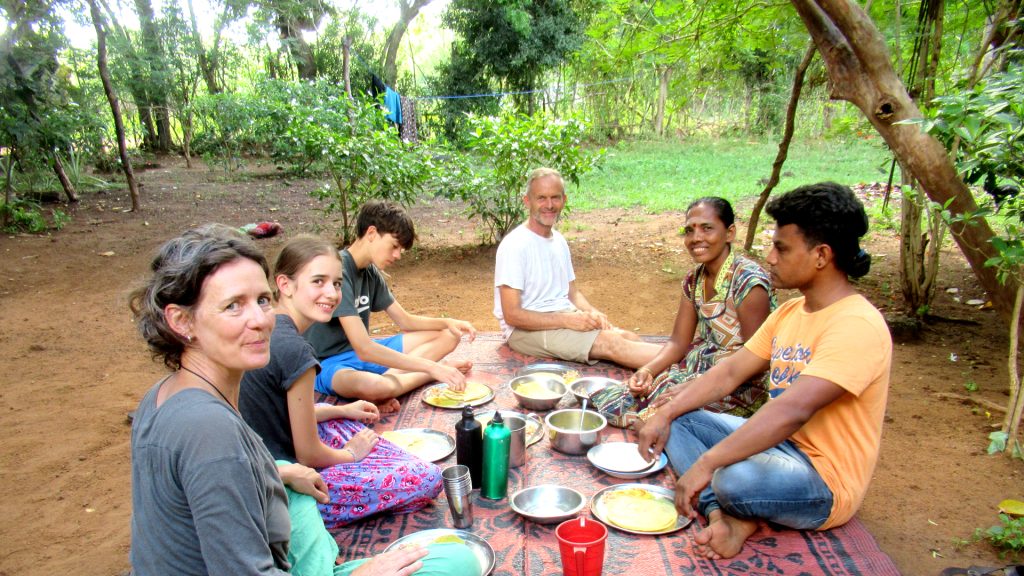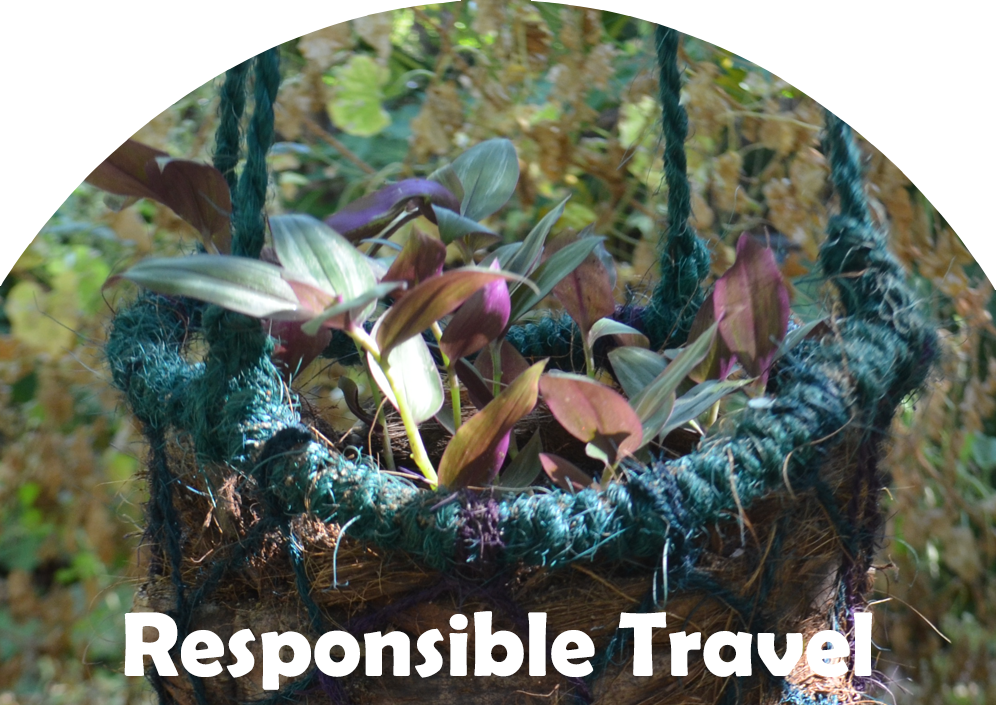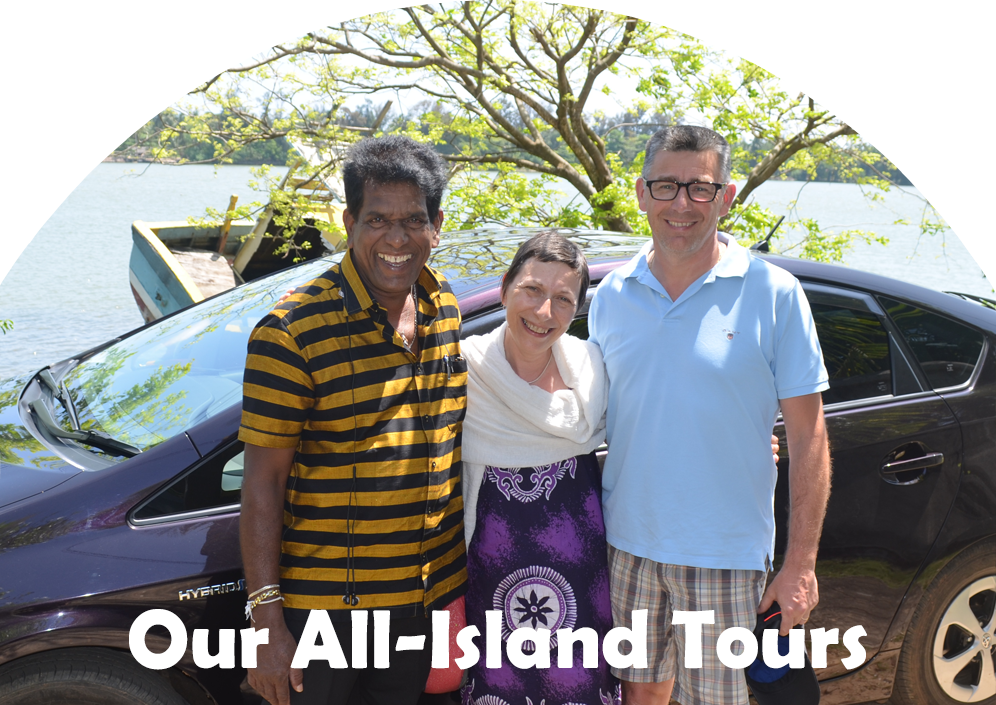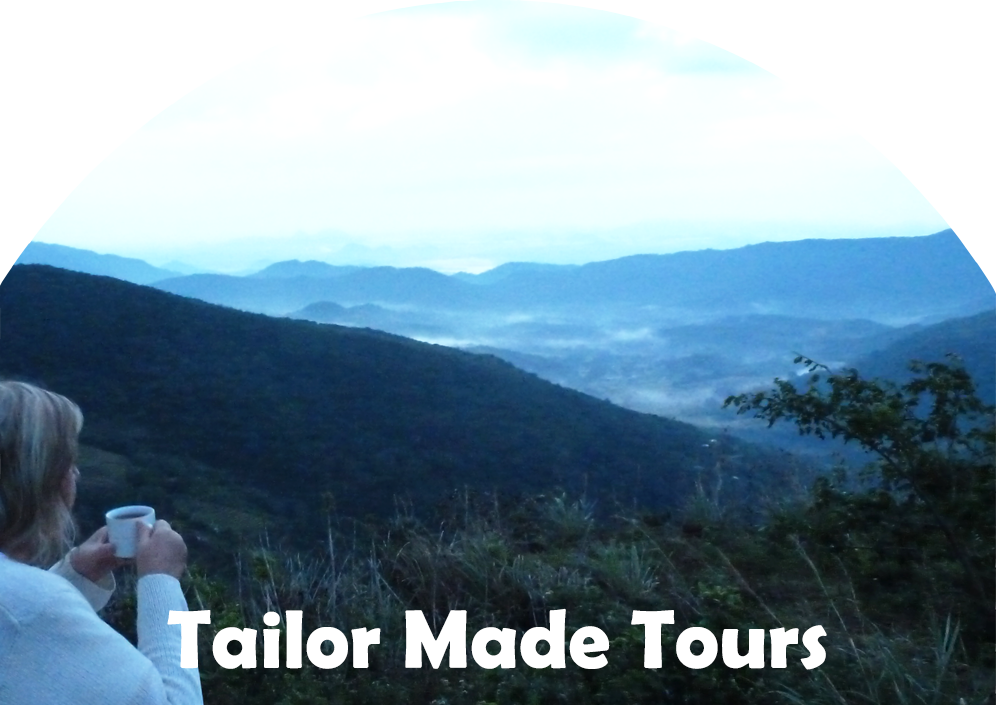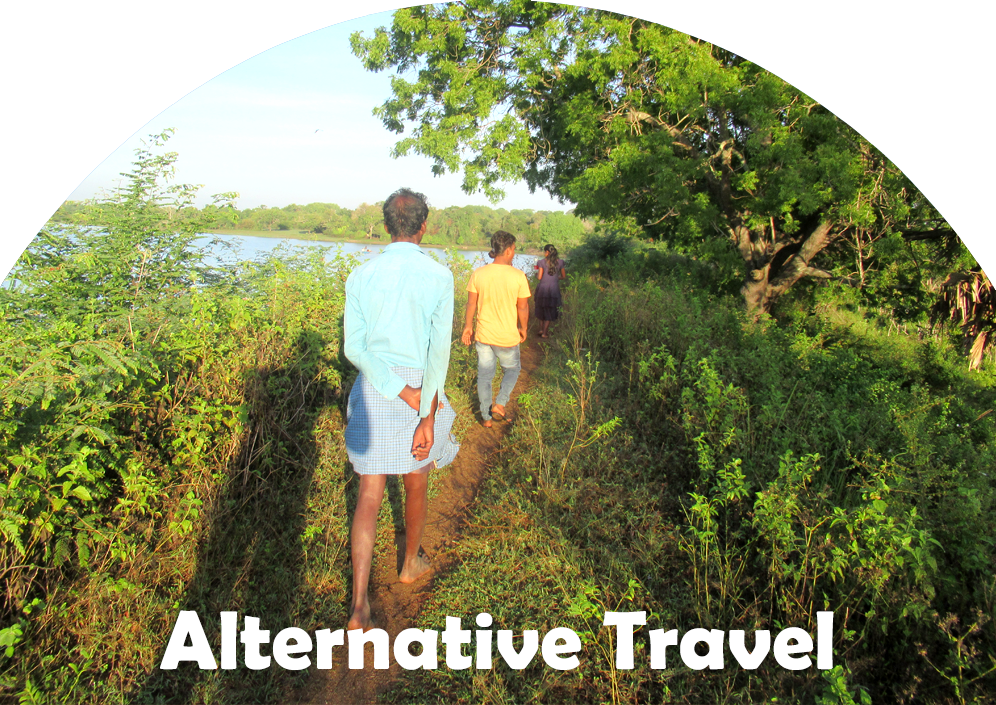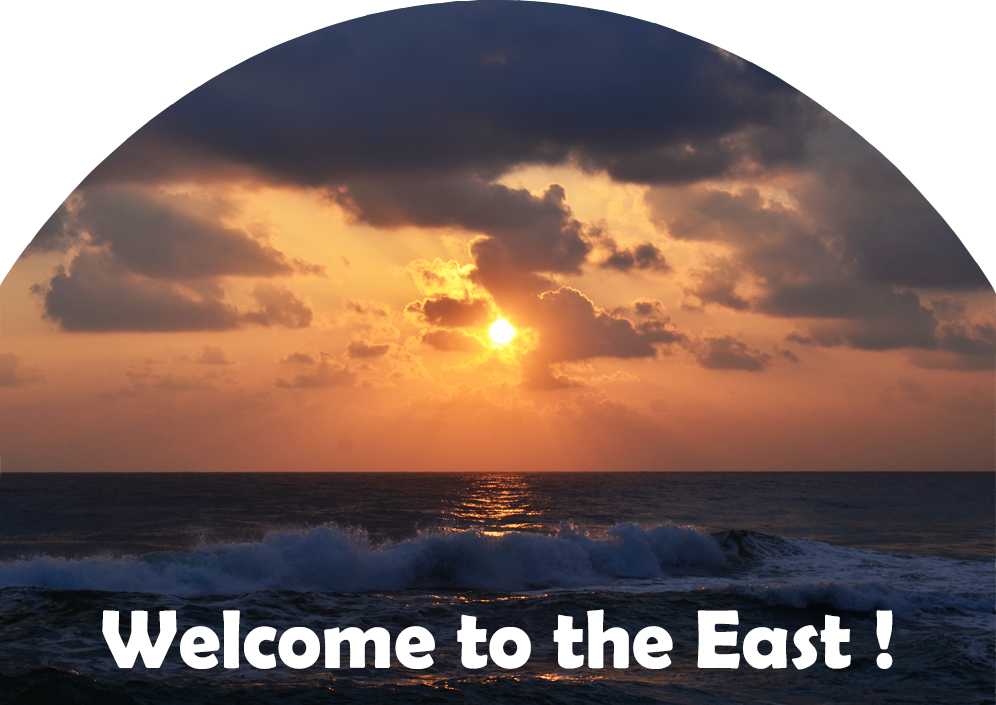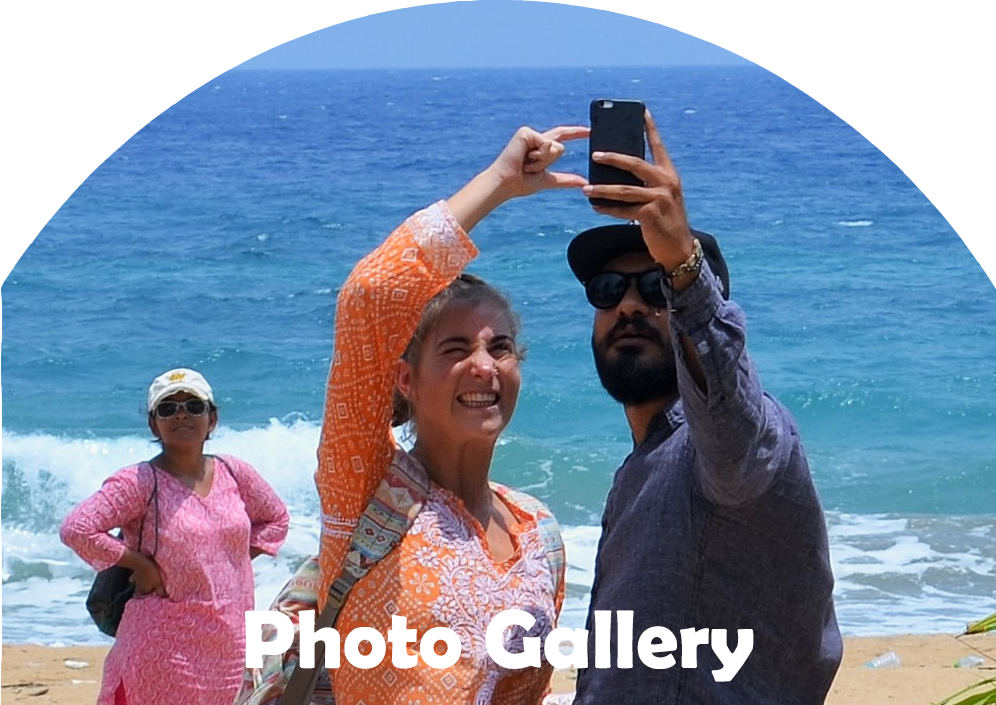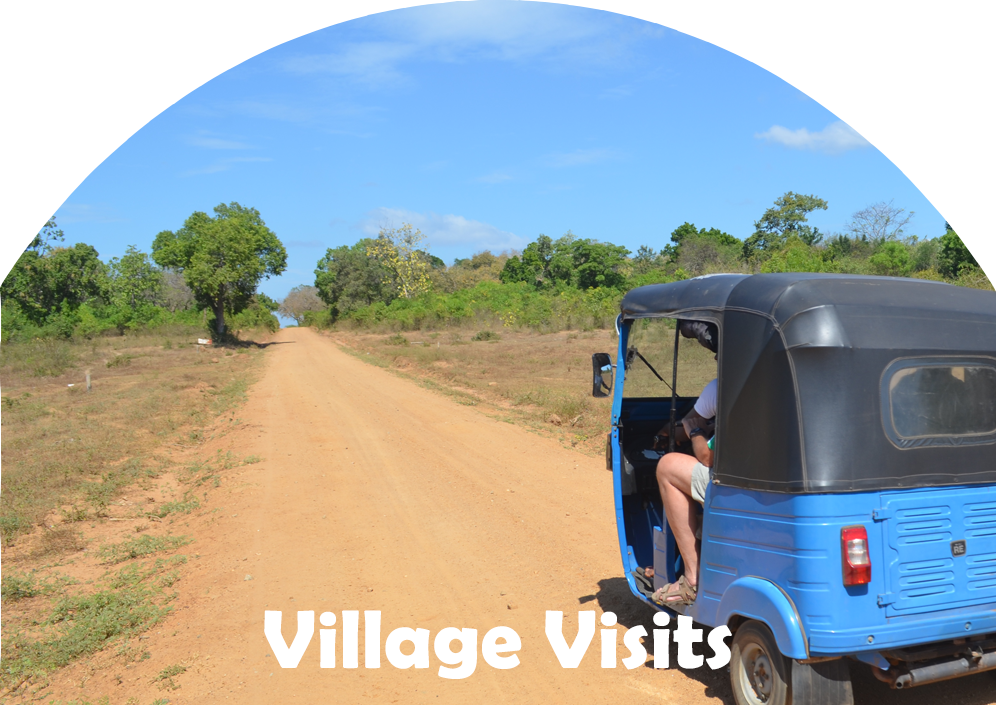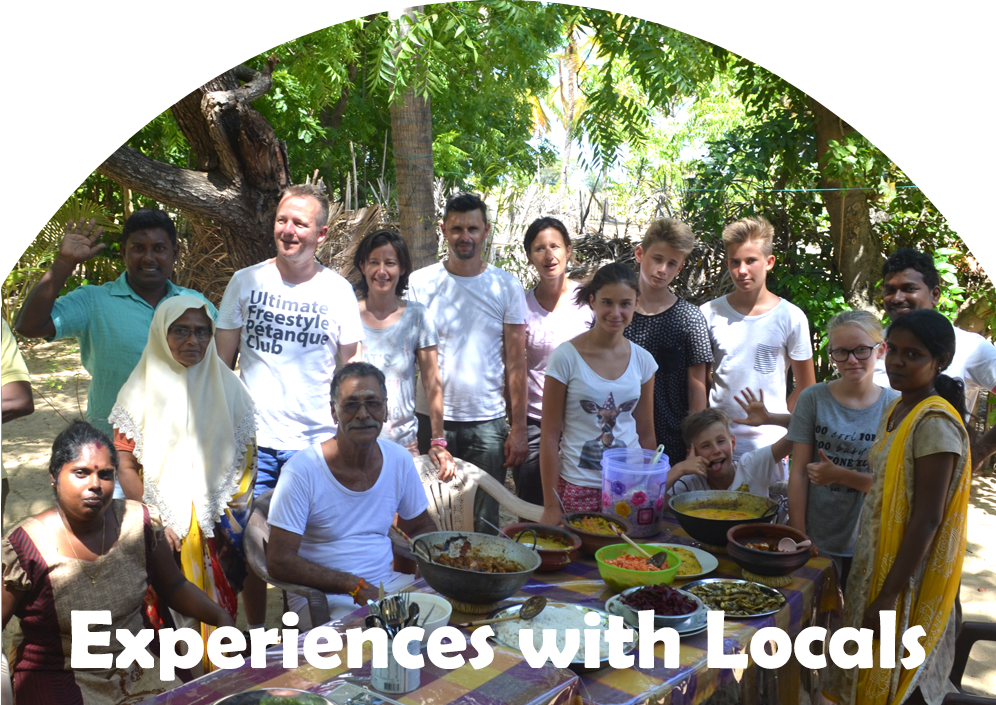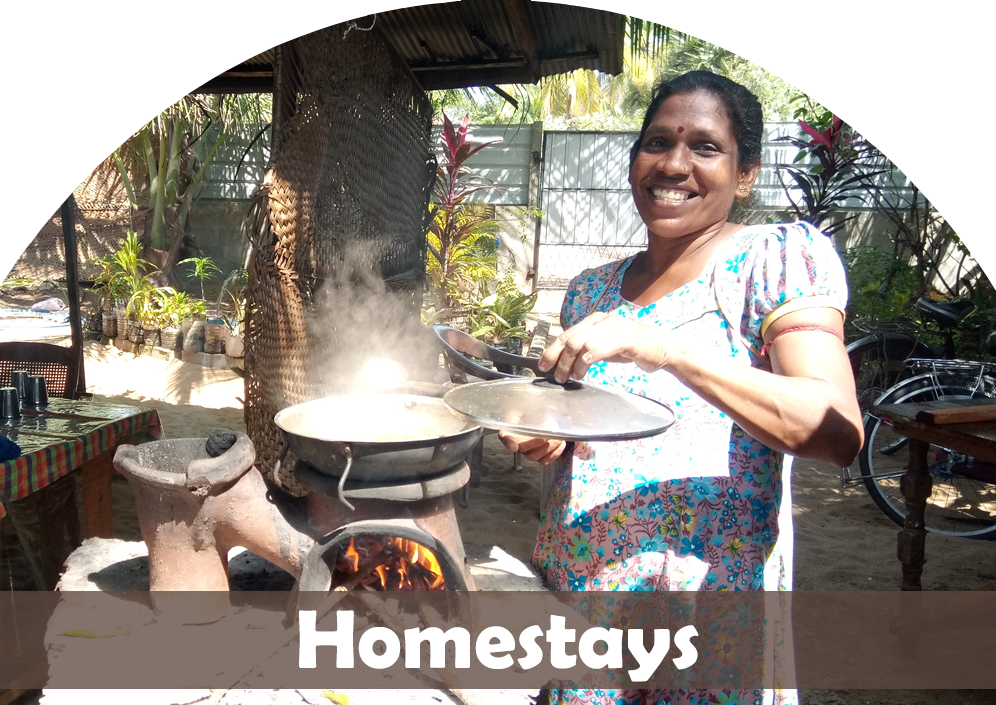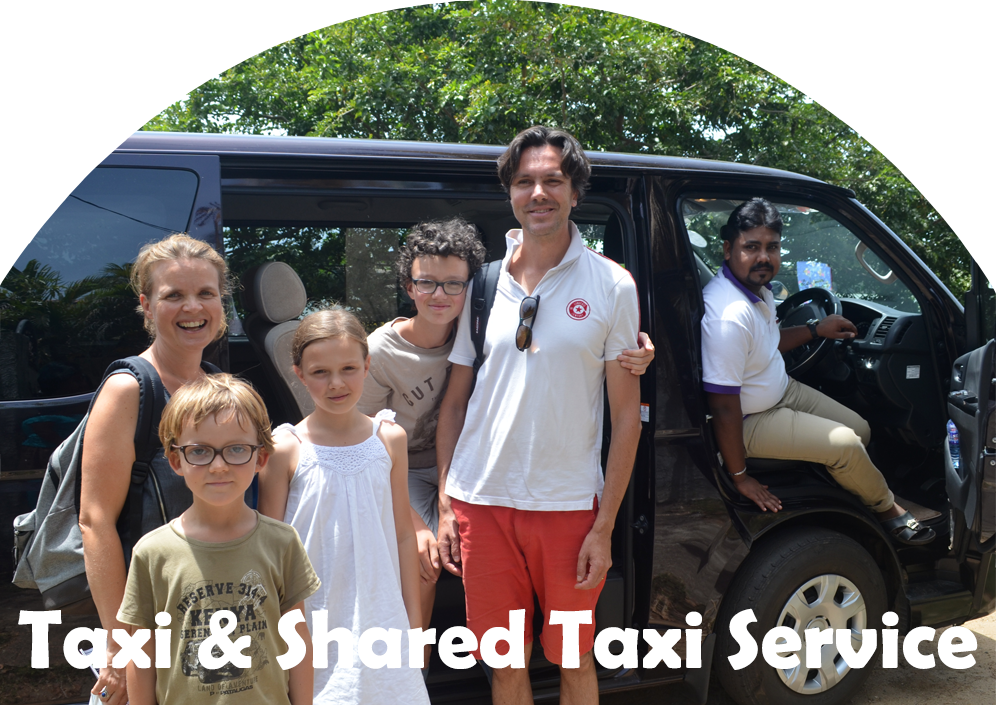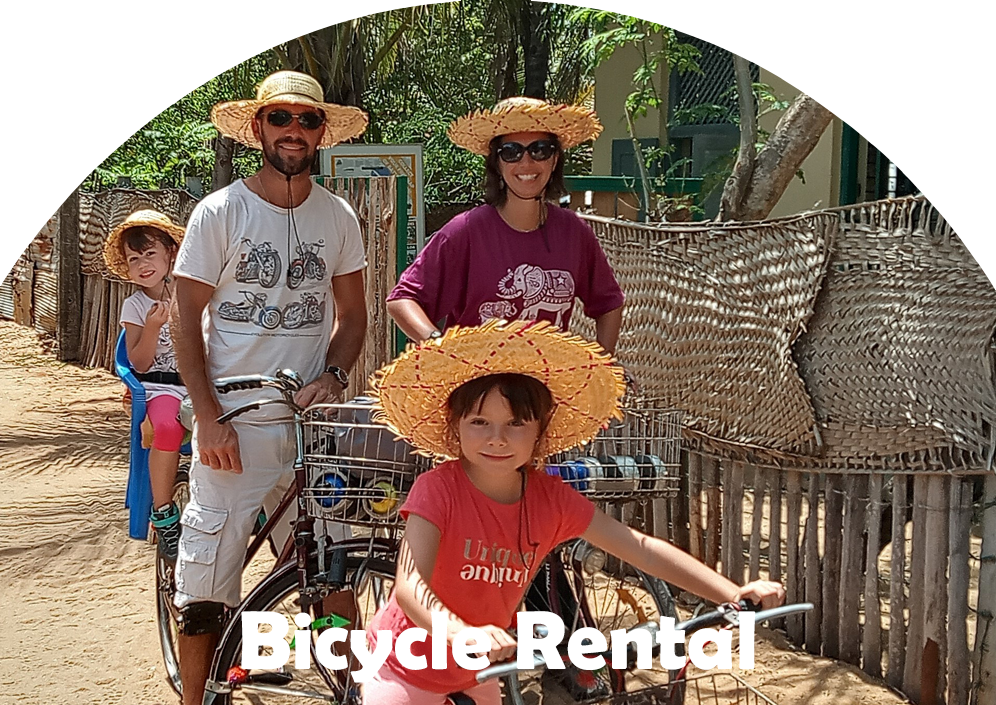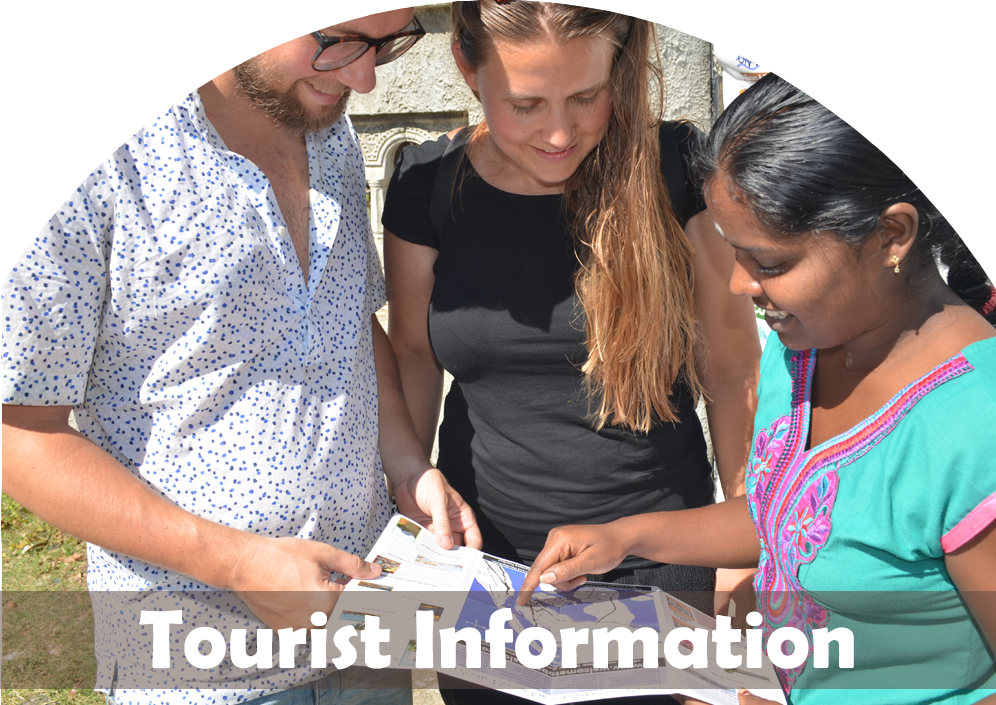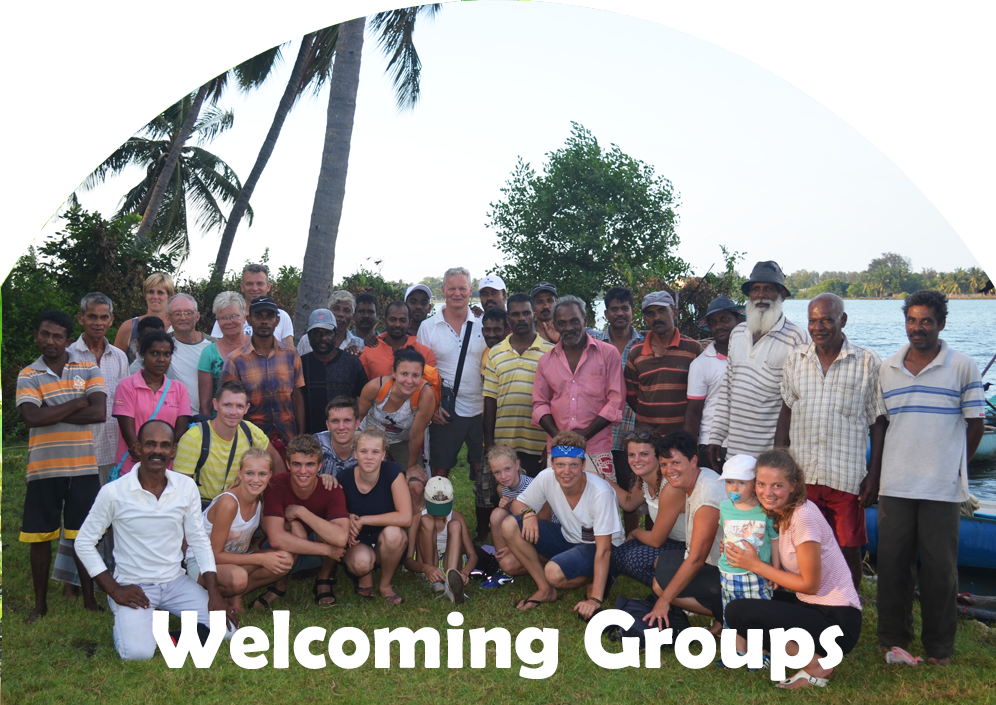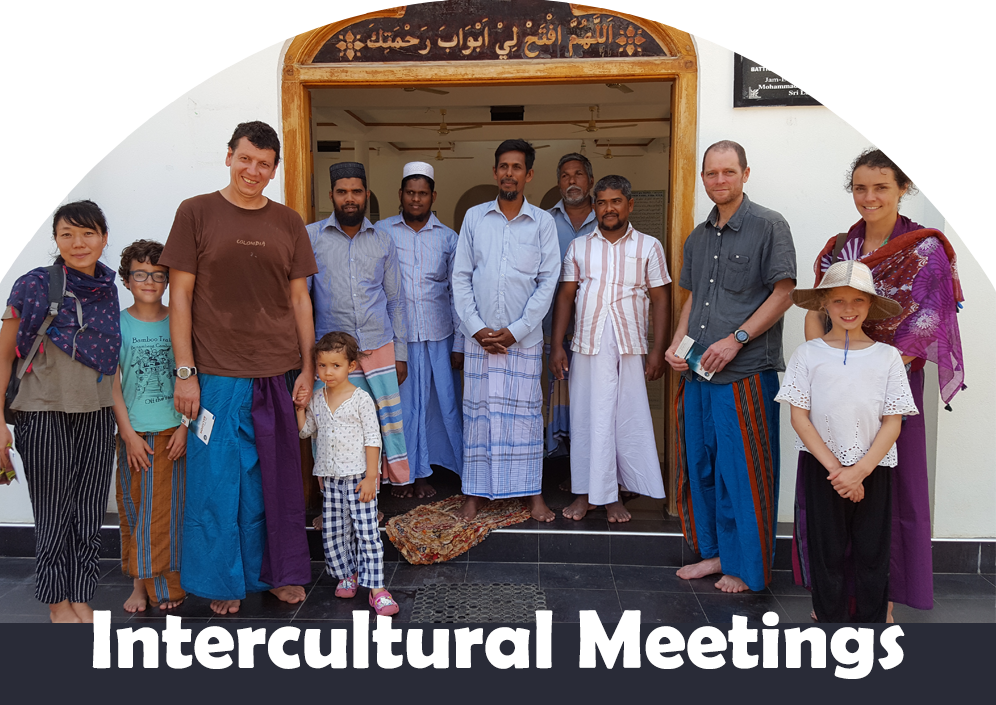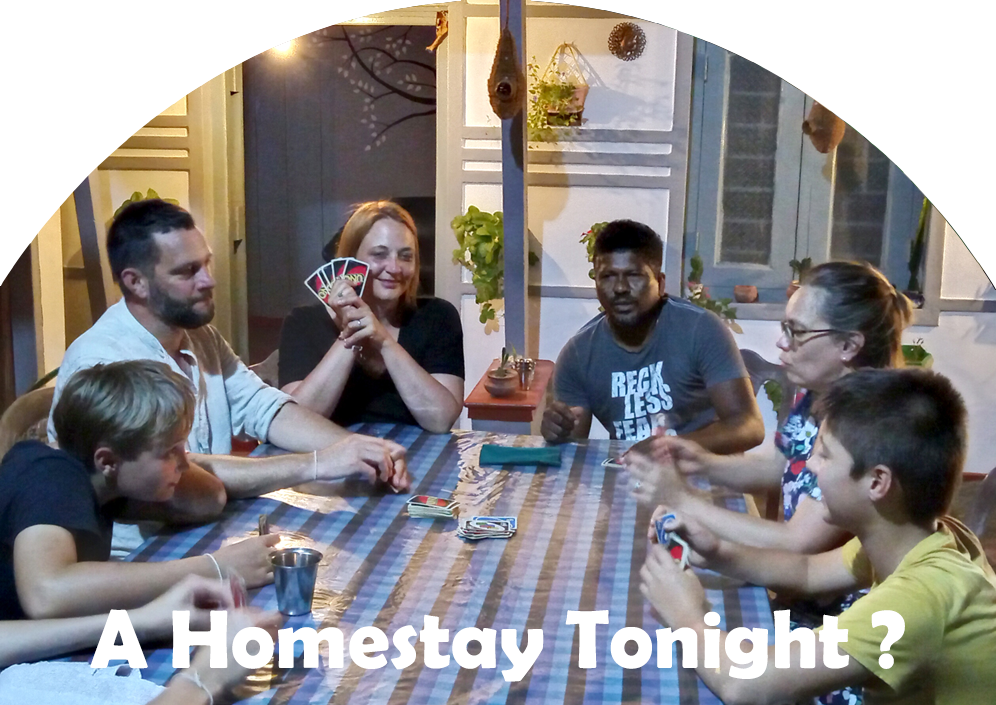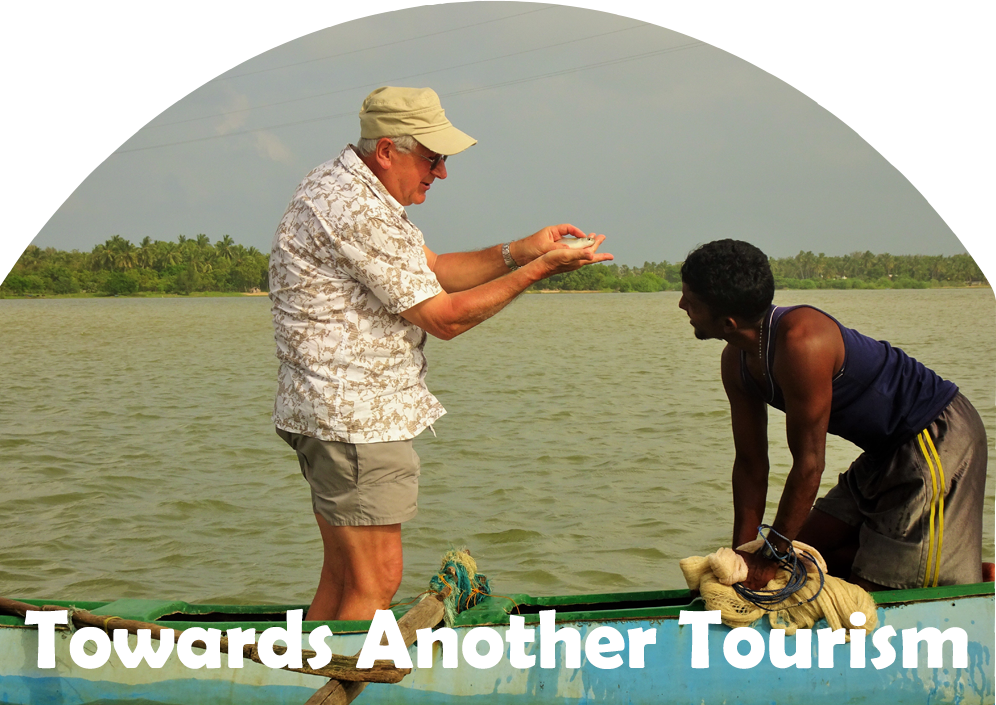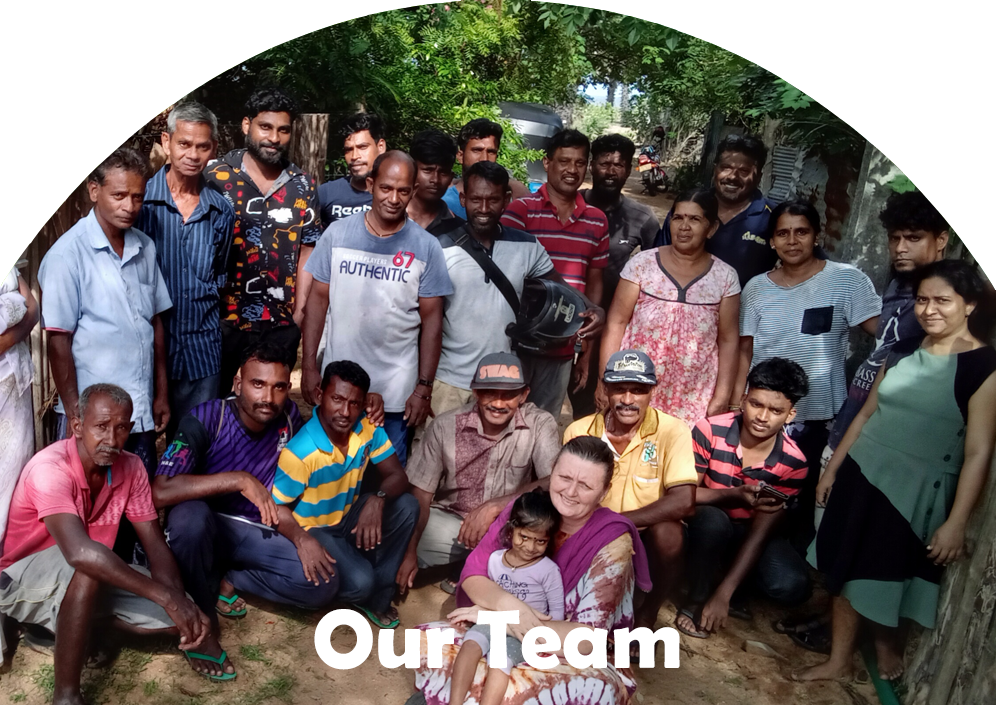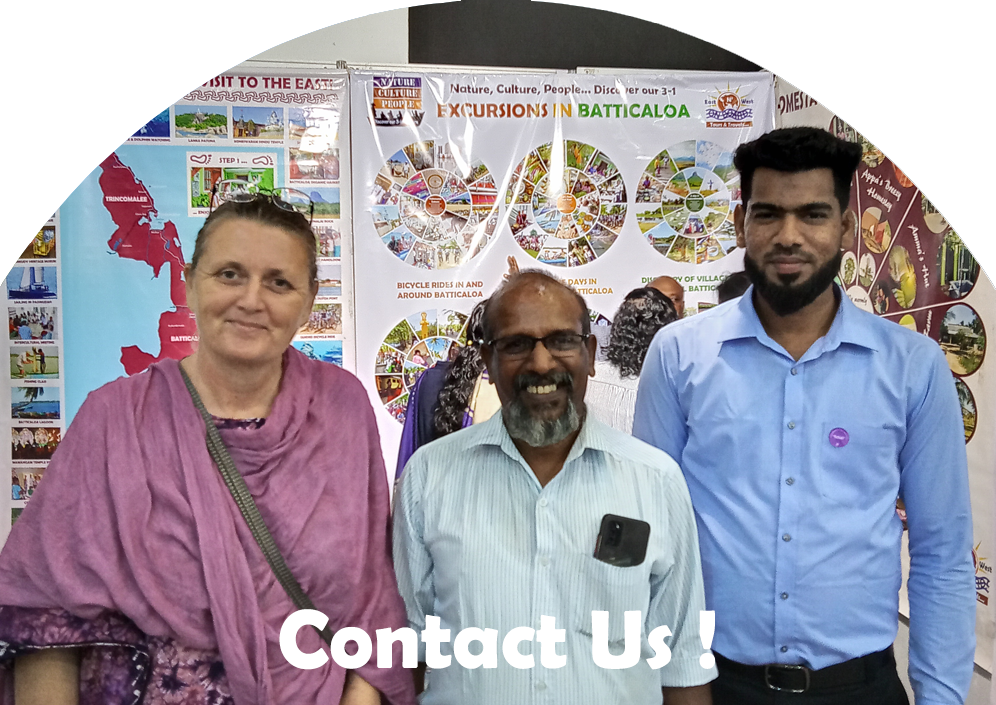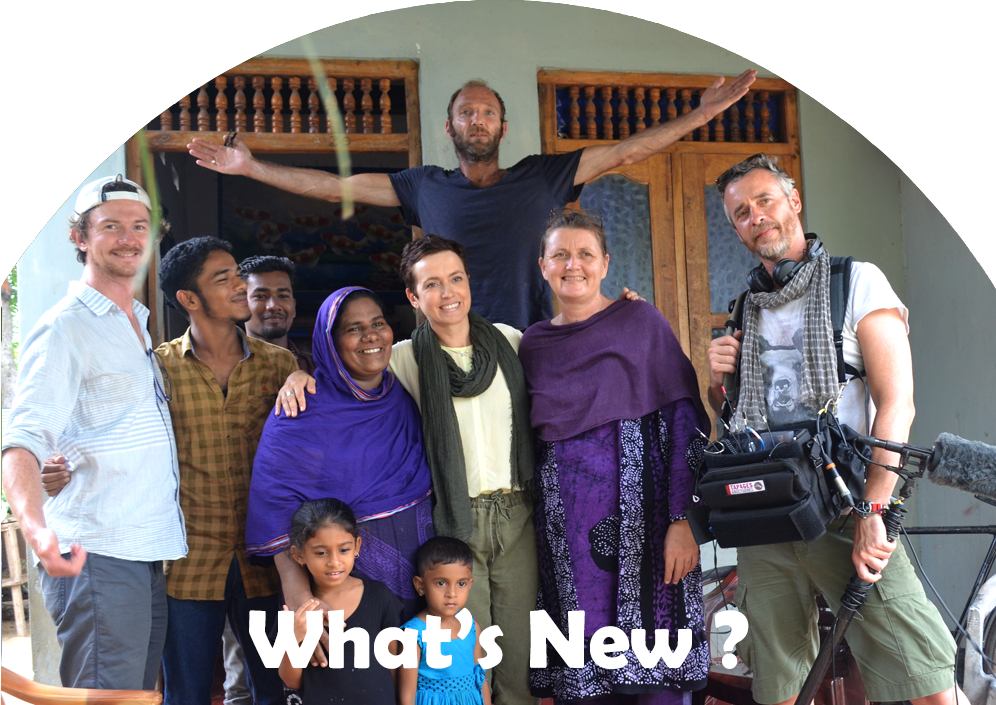[This article was written in 2014, one year after the creation of our travel agency. While some points have evolved, many aspects are still relevant]
Well… How to define what we are doing, or let’s say… trying to do. Being non-specialists but very interested in the concepts of community tourism, eco-tourism, responsible tourism, degrowth, voluntary simplicity, and so on, our team tries to put into practice the major teachings of these approaches.
But you have to understand something. In Sri Lanka, there is so far, not much done in those directions. If eco-tourism is a word which is quite commonly used in here (and probably not always rightly), the other concepts are quite unknown, except maybe from researchers and universities.
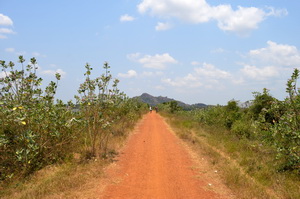
A few points about Eastern Sri Lanka
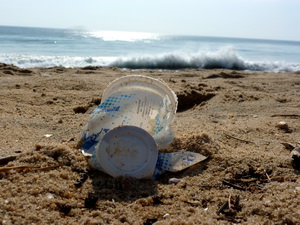
It has to be understood that in the area where we are operating, public awareness about environmental protection is quite low. As an example, refusing plastic bags in shops, looks like a weird idea to most of the shop-keepers, “it is free Madam, you don’t have to pay for this bag” is what they will generally tell you. You can sometimes see fish-mongers throwing plastic bags in the lagoon, unaware that they are threatening their own livelihood while most of the families burn or bury their waste altogether in their land.
With regard to the development of tourism, there are also cultural barriers. When compared to other places on earth, the different communities in Eastern Sri Lanka are quite conservative. For example, the dress code (especially for women) is a key element on how foreigners are going to be “assessed” when visiting the area. A foreign woman, dressed a bit lightly, if she smokes or drinks alcohol, has all chances to be considered a prostitute by a significant percentage of the population. The so-called “western world”, although very attractive is despised in many of its characteristics. Prejudices against western ways of life are high, and it takes a good deal of patience, negotiation, observation and discussion to move forward in certain situations.
Within this conservative society, you can observe that there are very few women working in the hotel industry, especially in our area. Here again, the lack of knowledge and the misconceptions about tourism industry prevent women being involved in the sector, and the ones who do dare to do it must struggle a lot to resist the social pressure against their choice.
So far, there does not seem to have many connections between what happens on the coast, in large hotels, and the people living in villages inland. In the newly built star hotels in Passikudah, our local famous beach, most of the workers come from other parts of Sri Lanka, and it is quite rare to see a local person in a managerial position. A recent study showed that in Passikudah, 54% of the income from tourism leaks out of the district, as a majority of workers and supplies come from other parts of the country.
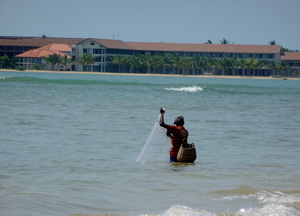
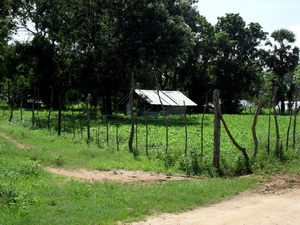
Waking up from the sorrow and grief of 30 years of armed conflict, Eastern Sri Lanka’s population has now an opportunity to be involved in the “tourism boom”, but most of the inhabitants do not see, first, the beauty and touristic potential of their environment, and second, are not aware of the possible employment and income they could get out of this development, whether it is inside the hotels or outside. Migration to the Middle East and risky travel by sea to Australia are sometimes seen as the only ways for young workers to earn a decent living to support their families.
Another aspect to be considered is a kind of hopelessness and helplessness you find in certain areas. There are inland areas where people have been displaced many times in the 30 years’ war, have lost repeatedly loved ones and properties, have been resettled and displaced again. With the tsunami in 2004, the end of the armed conflict in 2007 in Eastern Sri Lanka and the end of the war in 2009, scores of NGOs have flown in and started emergency, rehabilitation and development projects all around. Sometimes, these projects really involve and empower communities in the process, sometimes they put a priority on results and indicators and disregard the importance of community participation, at the same time disempowering villagers in the process.
Let me give an example. In a field-visit to inland villages in 2010, we found out that in a village, an NGO had built 6 common latrines but that nobody was using them. When inquiring from villagers why they were not using them, they told us that there was no water nearby (which was true for one of them at least), so they could not use them – which is understandable in a culture where people do not use toilet paper but water to wash themselves after going to the toilets.
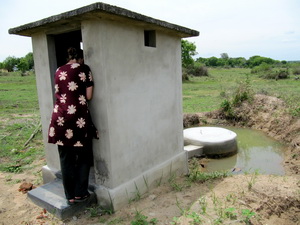
But there was another latrine, around 50 meters from a large well with water. We therefore also asked the villagers: “What about this one? It is also not used, but there is water nearby, so?”. The answer of a villager present, was that the latrine was not completed, and that they were expecting the NGO to come back and finish the work. There was actually a hole around the latrine pit and a small amount of soil closeby that needed to be leveled.
It would have taken 15 minutes maximum for a man with a shovel to “finish the work” and the NGO had left the place more than 6 months before. Whatever the real reasons behind the non usage of these latrines in this village, the conclusion is that, this project looked like a failure. Money had been spent, reports had been written to fulfill the donors’ requirements on time, but the people in the village were still defecating in the bushes.
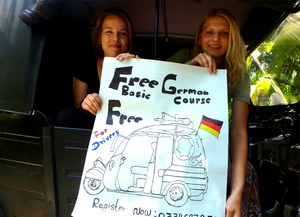
Let me give you a second example. Last year, we proposed free basic German classes to 3-wheeler drivers since we had young German volunteers with us. Our institute was willing to facilitate the process of organizing these basic classes. When informing the 3-wheelers’ association about it, we were asked what would be “the salary” that we would give the drivers to come and attend these classes. Another 3-wheeler driver came to ask us whether we would give them any gift to attend the classes. This shows the difficulty of working with a population that has received incentives for years from the international humanitarian sector to improve their situation.
If some people have really benefited from the NGOs’ support, some others have been disempowered by this assistance and have ended up thinking that you have to pay them to participate in what they see as one of “your programs” rather than one of “our opportunities” of self-development.
So… As a local travel agency, where do we stand in this context?
Having lived in Batticaloa for the past 5 years, I do think that, rather than the enchanting lagoon, gorgeous nature, original cultures that definitely make Batticaloa a place worth visiting, the first gem of this district is the People. Without idealizing them, I could say I have learnt, from the local people, a good deal on “how to live”. It is quite refreshing to just sit under a tree in a village, with a cup of tea, chatting with a family. I do love it and I am quite sure a lot of visitors will love it too. Far from our consumer societies, just enjoying the sunset while hearing the goats’ bells ringing the time of coming back home… This must look a bit funny, when you read it, but it is a peaceful and enjoyable way of life for nature and people lovers.
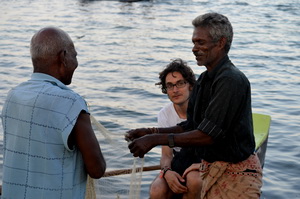
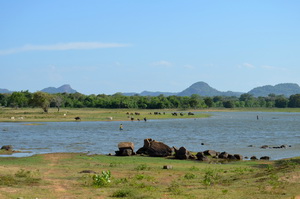
At the same time, job opportunities in villages are rare, and poverty is still rampant. But since this gem of hospitality is present, as well as a gorgeous nature all around, why not try to bring income to villages by inviting travellers to spend some time in the villages, with the villagers?
During our day tours, food is prepared by the villagers, and we are currently trying to make them reflect on how they could “entertain” our guests, guide them around their environment and explain their ways of life and means of living…
We also hope to develop accommodation facilities in certain villages, by having families welcoming the travellers at home; linking people from different cultures and backgrounds, making our guests experience life in a remote village and as a result, creating income in the villages…
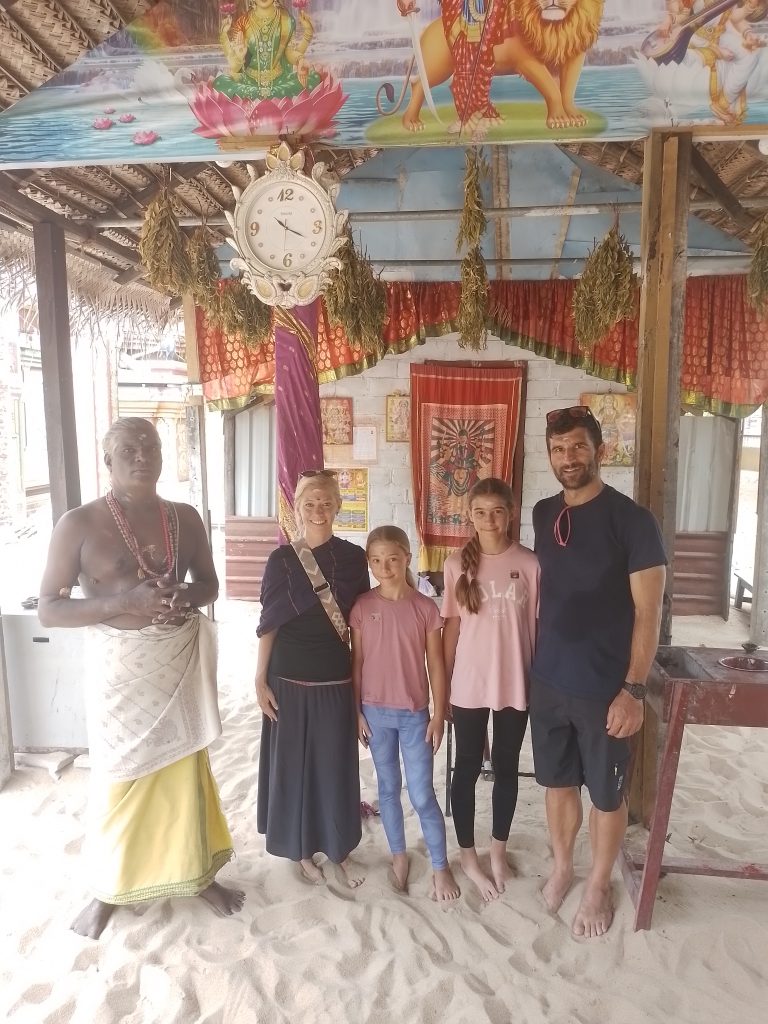
What is our “market”?
One common question of people inquiring about our work is “what is your market?”. I am usually unable to answer this question, and also probably a bit unwilling to do so. First, because seeing people as a “market” disturbs me as I just don’t like to see people as “walking purses”. Second, because – since we have a website and some advertisements in different guesthouses and hotels in the district – our “market” is whoever finds what we are doing interesting and contacts us for additional information. Our guests range from backpackers with a very limited budget who hire bicycles for the day to go out on their own, to guests staying in 5-star hotels in Passikudah looking for a luxury van.

There are also guests in smaller guesthouses, preferring to go on a guided bicycle ride or for a cooking class besides different visitors abroad, inquiring by internet about our services, accommodation, home-stay, taxi services and tours. These are our guests… people from various ways of life and with different expectations.
Trying to put in place some village tours and community tourism – so that the local population benefits from the presence of tourists – we do not believe in “purist” approaches, that target only people who are already convinced by these concepts and values. First, because it is a small minority of travellers. Therefore, working only with them would restrict our activities to cater to the needs of this minority and would isolate us from the mainstream tourists. The second and more important reason, is that whatever the choice of tour and accommodation visitors have done to reach Sri Lanka, we believe there is always scope to show them a different picture, to bring them gently to a different experience of travelling.
People staying with package tours in luxury hotels on the beach might have chosen this type of travel because it was simpler to organize and it was making them feel safer when travelling for the first time to Sri Lanka. It does not mean that they are keen on staying 2 weeks by the swimming-pool in their resort. It does not mean they are not interested in meeting people in villages and discovering their ways of life.
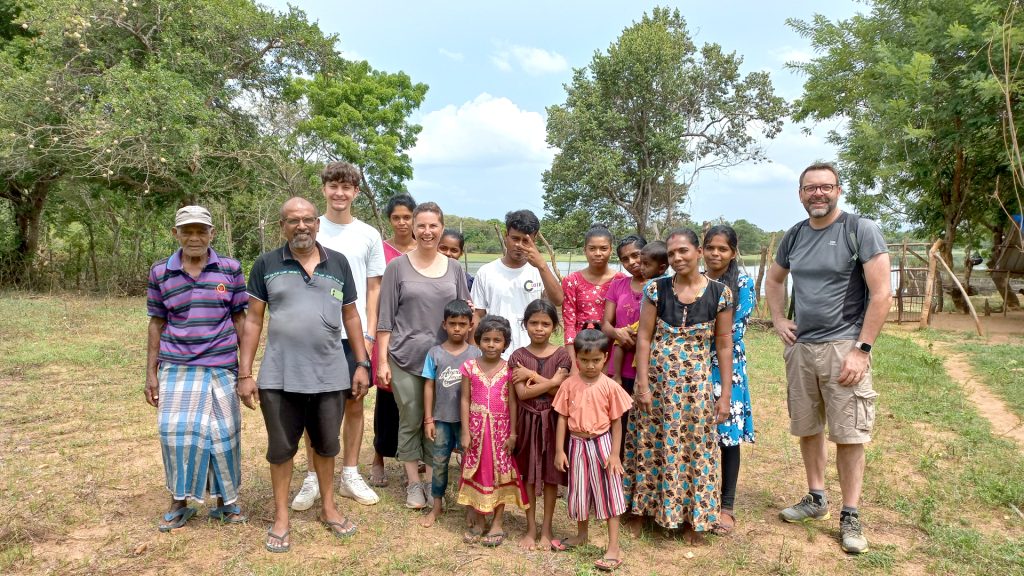

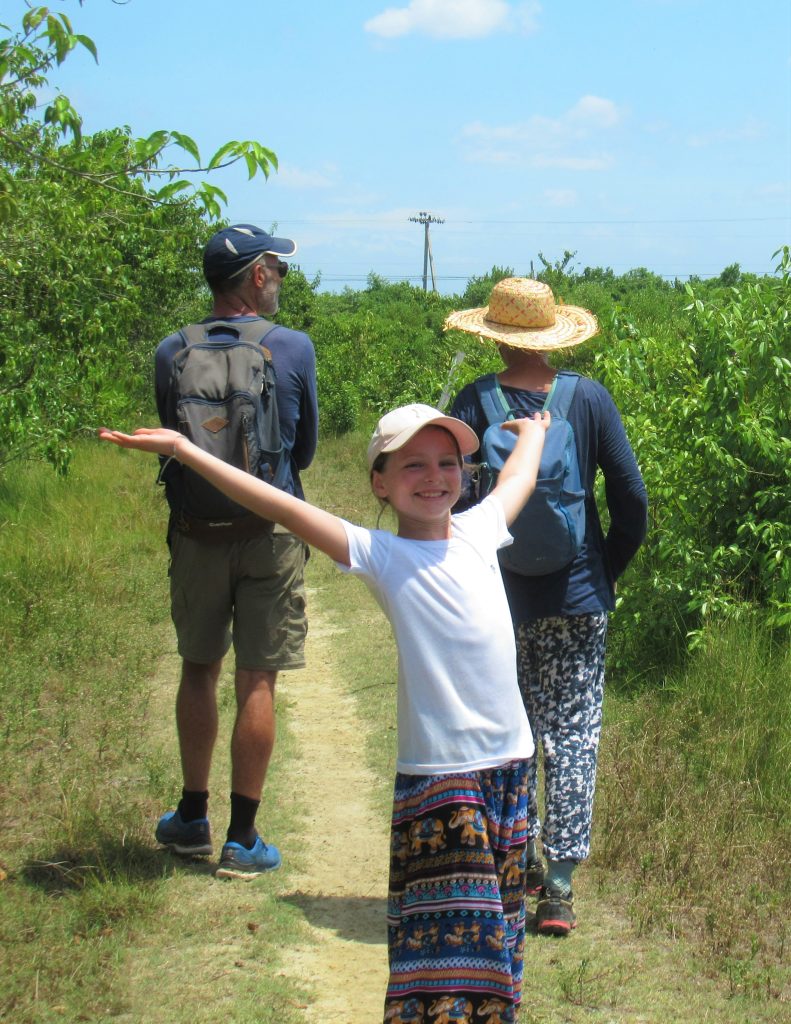
We work with human beings here, not with “markets”. Assessing our guests’ desires, connecting them with the appropriate experience and facilitating their meeting with local people that will make them have an unforgettable day is what we do.
And believe me or not, it works well and it is rewarding for all.
Our role is to link, to create bridges between people who would have found it difficult to meet each other without our support.
Creating opportunities to discuss, laugh and share a meal together, exchange ideas about cultural differences, creating more mutual understanding, between East N’ West, all on Board!
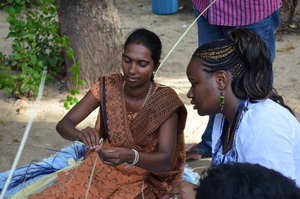
How do we position ourselves regarding our Corporate Social Responsibility?
Well, to speak about redistributing profits, there should first be profits, which is not the case yet, for our one-year old company. But on our small scale, we do whatever we see as best practices in our work.
Let me give you examples:
We do provide free tourist information to whoever contacts us for this purpose. When people look for accommodation in our district, after assessing their needs, we do recommend them the right place according to their requirements, giving priority to the small structures that sometimes strive to make a living despite their good-quality services.
We collect a small financial contribution every 6 months from the tourism facilities that are advertised on our website. But there are small guesthouses and home-stays that do not pay, as we know that they are facing financial difficulties.
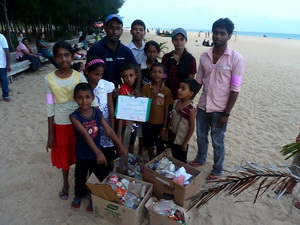
We are keen on organizing some activities to clean the environment with the help of the local population and the support of the visitors. We did one beach cleaning day with 70 people in 2013 and hope to multiply these kinds of initiatives very soon – just need to find time!
We do want to reduce the usage of plastic (bottles, bags) in both shops and tourism facilities and are currently reflecting on how to do this. We refill bottles in our Centre, with filtered/chlorinated water so that our guests use less plastic during their stay with us.
We also propose taxi-sharing to our guests whenever possible, so that we can decrease the number of vehicles travelling on the same route, reducing our environmental impact.
We collect a contribution of Rs. 100 per guest per day from our tours, which we have so-far piled up. We will spend this contribution on socio-environmental activities in the villages we work in, together with the communities we work with.
We do provide advice for travellers on how to communicate better with the local population, as well as answer their questions about the local cultures whenever we can and gently encourage them to respect the local “dress code” to facilitate their contact with local people, especially in villages. We also do explain to people in villages that dress codes and ways of life are different in other countries, and that in case guests seem to behave “weirdly”, it might – or not – be because of cultural differences. These can be smoothly explained and clarified in most of the cases.
So, in conclusion… can we call what we do “community tourism”?
May be not. May be not yet. As explained above, people in villages have suffered much during the war and sometimes display a certain level of apathy and hopelessness. Having them taking the ownership and responsibility in accommodating, feeding and entertaining guests, will take time. But it is worth trying!
No doubt that if an expert in community tourism would visit our tours tomorrow morning, he would object that we do not respect all the criteria to be labeled “community tourism”. But if the same expert would take time to understand our context, to sit for a tea with the villagers, to enjoy the sunset in the village and to put aside his list of criteria for a while, he would certainly conclude that “we are on the way…”. “Not really on-the-tracks, not fully off-the-tracks, but definitely on the Way towards Another Tourism…”
